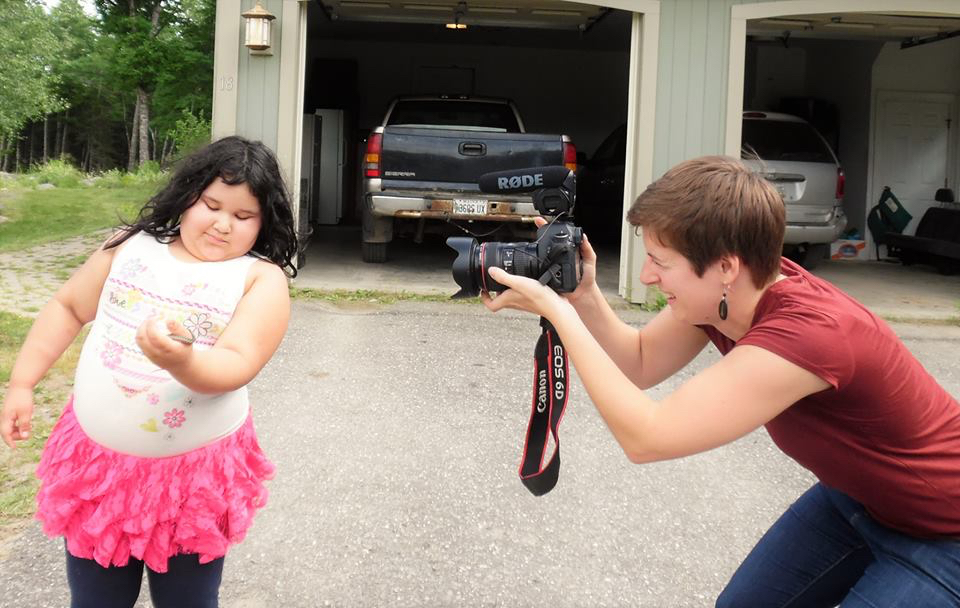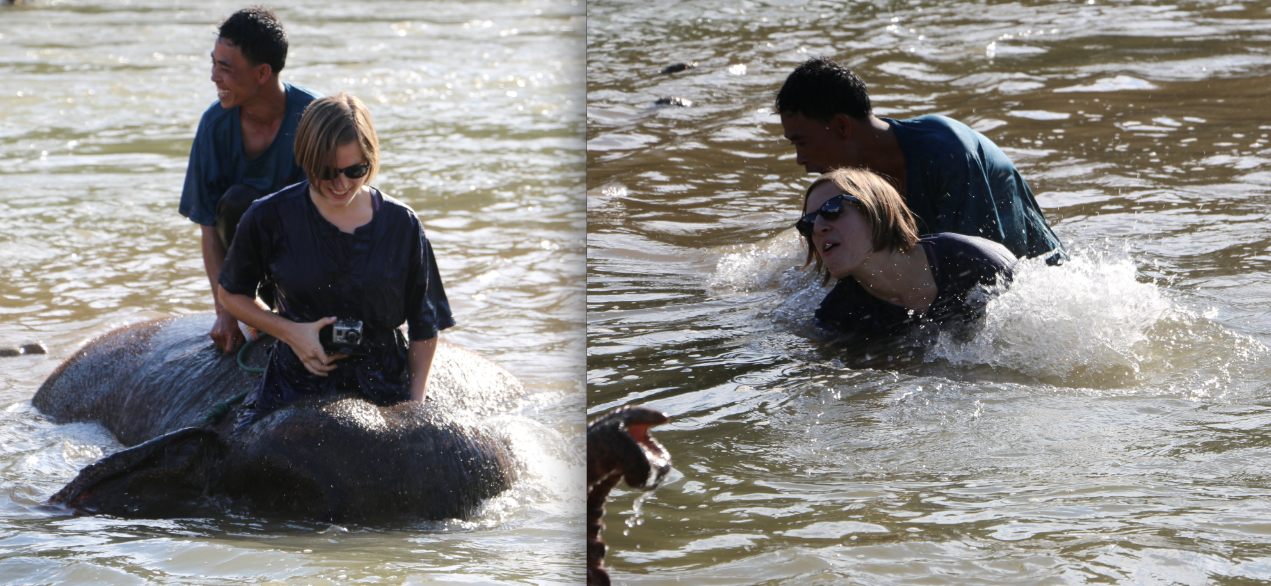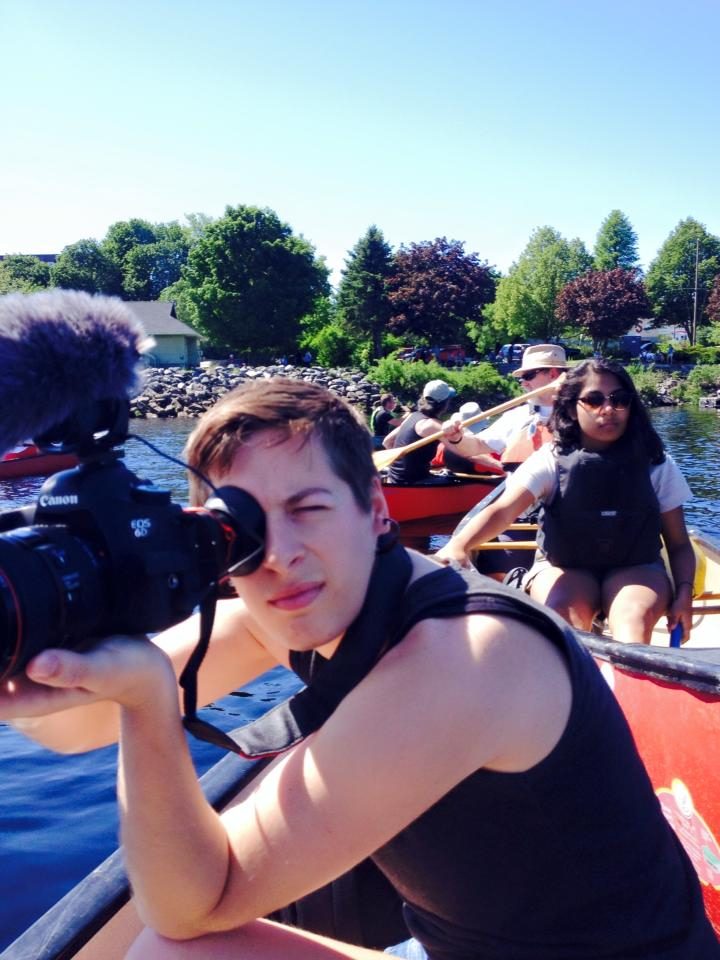MEMBER MONDAYS | Kate Kirby
MEMBER MONDAYS is a weekly interview series highlighting current members & alumni of the Austin School of Film + Austin Cinemaker Space community! Each week, we’ll be featuring one of our incredibly eclectic community members, and doing a deep dive into their work. Insight into what makes them, them. Kate Kirby, a new-ish member to the Austin Cinemaker Space community, has been hard at work on her new documentary film Elephant Keeper. A world traveler and soulful storyteller: we got a chance to chat with her about her recent move to Austin, the documentary, and her journey as a filmmaker.
First of all, welcome to Austin! It makes sense to assume film brought you here, but tell us more, including how you heard about ASoF!
Kate Kirby: Thank you! I just moved here from Maine, drawn to the film scene here, and looking for a larger, more diverse community of creatives to collaborate with. Mainly I was just needing to live in a place with less than 6 months of winter. And I mean real winter, not like Austin “winter.” Environment is so key to creating art.
Coming from a place where there are very few resources for filmmakers, especially in central-northern Maine, I have been pleasantly surprised at how quickly I’m getting to know film folks here. I’ve only been here a month and I’ve already met so many people who are driven and passionate about their work. I found ASoF while researching Austin-based film organizations, and knew when I took the tour that I could get stuff done here. Sure, it was pretty quiet when I first arrived (I guess 10am is early here?), but this place is a living, breathing body of creatives, and I’ve come to appreciate the ebbs and flows.
You are the founder and director of Kindred Planet Productions (KPP) with the mission: “To capture the interconnectedness of a 21st century world, raise awareness, and inspire change by bringing into focus stories from the margins.” Was there a particular event, point of inspiration, or something from your MA in Global Policy studies to begin this company?

KK: From a young age, I felt a powerful sense of responsibility to do what I could with my many privileges to make positive change. I took a very logical approach at first: I worked for nonprofits, did campaign organizing; then started a graduate program in Global Policy, with an emphasis on food security and sustainable community development. There came a point during the final semester of the program when I realized that I really didn’t see myself working for institutions that were perpetuating the systems I wanted to breakdown and replace. I guess that’s when I started opening up to the possibility of pursuing something I had always enjoyed: filmmaking, but doing it in a way that aligned with my values.
The production company Kindred Planet Productions (KPP) was officially founded at the airport, en route to La Paz, Bolivia, where two close friends and I learned how our consumption of quinoa impacts Bolivian growers. From Bolivia, to Laos, to Wabanaki territory, to Standing Rock, to Gordon College, KPP has taken on a life of its own over the past four years as I learn, grow, and evolve.
Your first film, Quinoa Soup is about a Bolivian quinoa-farming couple of the indigenous Quechua and Aymara nations. How or where did you get the idea for this film?
KK: During my final semester of graduate school, I had the opportunity to look at policy change through a different lens while embarking on my first documentary film project: Quinoa Soup. I had spent that previous summer in Timor-Leste researching how the Indonesian occupation had impacted the diet of the Timorese people, and what was being done to address the severe lack of access to protein-rich foods. The complex causes of food insecurity, and the power structures that perpetuate that was something I had spent a lot of time investigating, but I realized that not everyone has access to that information.
Around the same time, the viral YouTube video, “Kony 2012” was making the rounds, and I was so surprised to see folks who had previously had zero knowledge of this issue posting about it on Facebook. Content aside, I was struck by how powerful film can be to raise awareness and inspire change. The idea for Quinoa Soup also came from Facebook—from an article someone had posted. The title was evocative, and after reading through the article, I thought lacked representation from the real experts on the issue: the farmers. I invited one of my grad school colleagues who was doing radical research inside refugee camps on the Kenya-Somali border to accompany me. We met up with a close Chilean friend of mine once we landed.

Your latest film Elephant Keeper is in post-production. Can you give us a narrative preview of what to expect?
KK: Laos, a country rich in cultural heritage and exotic beauty, was once referred to as Lane Xang, or "The Land of a Million Elephants.” There are now less than 1000 elephants remaining. At the current mortality rates, it is believed that the Lao elephant will be extinct within 50 years.
Elephant Keeper goes behind the scenes at an elephant conservation center in Laos, providing a rare and intimate glimpse into the daily life of a Mahout. As the narrative explores issues surrounding extinction and conservation, tensions between utilitarian versus humanitarian approaches emerge, as characters explore themes of culture and identity, economic empowerment, and environmental stewardship.
Your production site says you seek to provoke critical thought and action through your films—and your film subjects are certainly evocative, too. Do you find yourself emotionally involved? Is it hard to leave one project and start another?
KK: A very big YES to both of these questions. I’ve been really privileged to work on films about issues I’m really passionate about. My heart is in all of these projects, and with the people who so graciously shared their stories with me. It is a very unique relationship.
What is your next project on the horizon? Will you be adding another “Coming soon…” to your production site in the near future?
KK: I’ve been telling myself that I need to just focus on wrapping-up current projects, giving extra attention on Elephant Keeper, as my co-director, Meg Webster, and I celebrate 4 years of production. I have a few more episodes of The Nibezun Project I’d love to get back to, including a 7-year-old’s roadtrip to Standing Rock, as well as a short featuring interviews with LGBTQ+ folks who attended evangelical Christian colleges with anti “homosexuality” policies. That said, I recently heard that a newfound Austin friend is looking for an editor, so I guess I’m open to starting new projects.

Can you please share some of the responses to your films, including the video you shot, It Gets Better - A Message for LGBTQ+ Students at Christian Colleges?
KK: I took a fairly unorthodox approach to building a career in filmmaking. I didn’t go to film school, and I’ve been based in rural Maine since I founded KPP back in 2013. Though my location hasn’t yielded a lot of industry connections, I have enjoyed the opportunities that come with being one of the few filmmakers in central/northern Maine.
Hometown fanbase aside, the responses from folks outside of my community have been, honestly, kind of shocking. The projects I’ve worked on seem to generate their own audience. I wound up receiving an invitation to screen Quinoa Soup at the University of Edinburgh, and was pleasantly surprised to receive new and unique questions from an international audience.
It Gets Better - A Message for LGBTQ+ Students at Christian Colleges, was a challenging and rewarding project to collaborate on. A Gordon College alum myself, this project hit very close to home. I was actually recently featured in the alumni section of the Gordon College magazine for my filmmaking, and noticed that the “LGBTQ+” portion of my interview had been omitted. Censorship and erasure has been a problem with that piece, but there has been a lot of positive feedback from students affected by these policies.
Lastly, when you accept an award for Elephant Keeper (because it is going to happen!), what will you say in your acceptance speech? Who will you thank?
KK: I definitely have to thank my close friend and co-director, Meg Webster, without whom this film would not exist. A big thank you to the Elephant Conservation Center community, including all of the amazing people who opened up their lives to us. And all of my loved ones who have kept me going all these years.
INTERVIEW BY: Stephanie Franks
[Kate will be hosting a special screening of Elephant Keeper NEXT WEDNESDAY! Click HERE to RSVP!]

